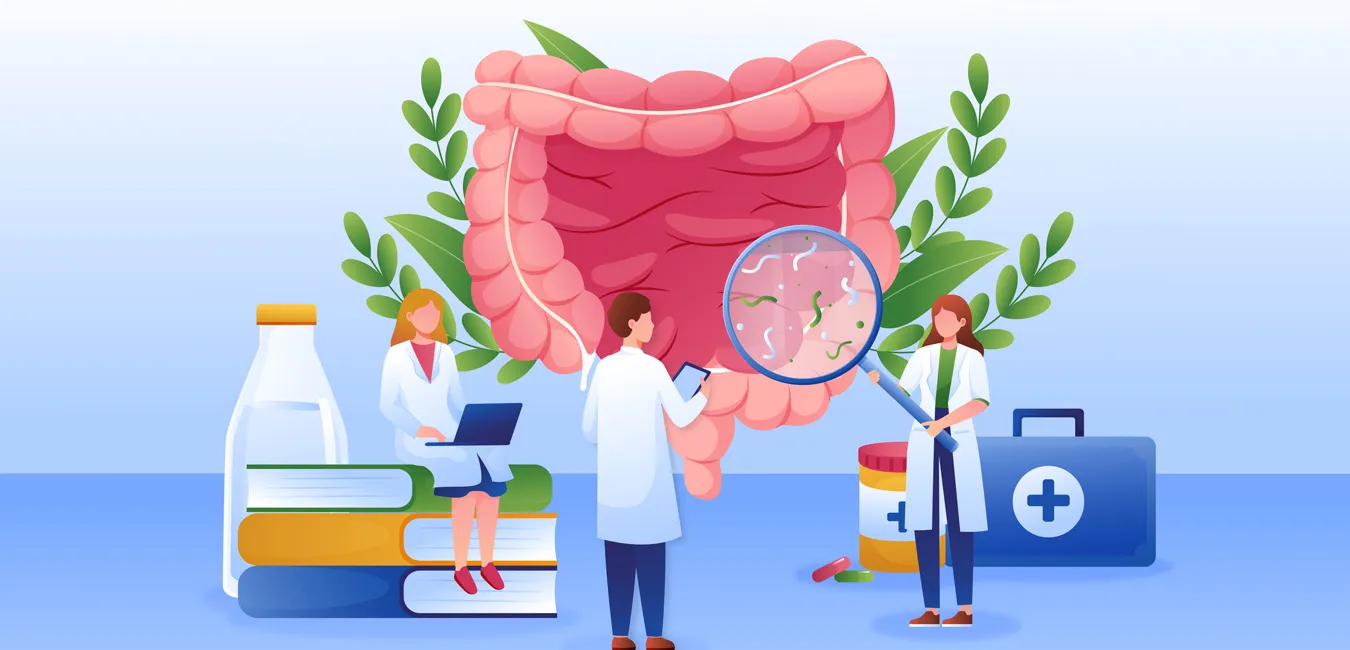November 15, 2025

Intestine of the human body is home to a vast community of microorganisms (bacteria) known as the gut microbiota. While these inhabitants are too small to be see with a naked eye, they exert a powerful influence on our overall health. In recent years, studies have revealed the impact of microorganisms on digestion, immunity and metabolism. One of the groups to gain particular interest is probiotics, which are the beneficial bacteria found in food and supplements that can aid in the maintenance and restoration of gut health. By understanding the symbiotic interaction of the human body with its microbial residents, we recognize just how significant they are to our physical and mental well-being.
Probiotics and Gut Microbes: What Do They Mean?
Probiotics are live microorganisms that, when consumed at an adequate dosage, confer beneficial health effects to the host. The strains are mostly found in fermented foods such as yogurt, curd (dahi), buttermilk (chaas), and lassi, as well as fermented snacks and dishes such as idli, dosa, and dhokla, kefir, kimchi, sauerkraut, kombucha, and dietary supplements. These microorganisms help to restore the fragile balance of the gastrointestinal ecosystem that may be disrupted by stress, poor diet, illness, or antibiotic use.
The gut microbiota, on the other hand, refers to the diversity of microbes that form a complex community of hundreds of species, each of which performs somewhat unique and complementary functions beneficial to the gut in digesting food, synthesizing vitamins, regulating metabolism, and providing a barrier to pathogenic microbes. A healthy gut microbiome is, therefore, essential for good health.
Influence of Gut Microbes on the Body
The most common influence of gut microbes on the body is digestion. However, the influences of the same extend beyond mere nutrient breakdown and absorption. Some of them are mentioned below:
- Digestion and Nutrient Absorption: Gut bacteria assist with the digestion of complex carbohydrates, fibers, and proteins so that these compounds can be utilized as important nutrients and short-chain fatty acids, which serve as energy for cells in the intestine.
- Regulation of the Immune System: Close to 70% of the immune system is processed in the gut. Probiotics can stimulate immune cells and help the body distinguish between harmful pathogens and harmless substances, reducing inflammation and lowering the risk of infection.
- Mental Health: The gut and the brain are connected through the gut-brain axis. Some microbes provide important neurotransmitters like serotonin and dopamine, which can play a critical role in mood, anxiety, stress, and cognitive function.
- Regulation of Metabolism and Body Weight: An imbalance in the microbiome has been shown to contribute to obesity, insulin resistance, and metabolic disease. Probiotics can help with metabolic regulation and improve energy utilization.
- Protection Against Pathogen Infection: Beneficial microorganisms create an acidic environment and also produce antimicrobial compounds to help inhibit the growth of pathogenic bacteria that cause disease.
The Role of Probiotics in the Body
Probiotics provide reinforcements for the microbial army of the gut. When the gut flora is altered, for instance, by poor nutrition, antibiotic use, or illness, probiotics return the gut to balance by repopulating beneficial bacteria. Probiotics enhance digestion, improve resistance to infection, and can prevent common gastrointestinal conditions, for example, bloating, constipation, or diarrhea, when consumed regularly.
In addition, some probiotic strains are useful in chronic conditions, including irritable bowel syndrome (IBS) or inflammatory bowel disease (IBD), and certain allergic conditions. The protective and therapeutic effects of probiotics make them an important part of nutrition and preventive health in today's world.
Conclusion
The complex ecosystem found in our gut is a fantastic testament to the balance and cooperation of nature. These little helpers, the probiotics and gut microbes, certainly impact our digestion, immunity, metabolism, and mental health. Seeing these helpers inspires us to promote health rather than address the disease, and to promote health through nutrition and lifestyle choices. By promoting our gut microbiome, we encourage our body's defenses and our overall vitality. As research in microbiome science continues to evolve, understanding and supporting these microbial partners will remain a cornerstone of modern nutrition, medicine, and holistic wellness.
Also Read: Prebiotic And Probiotic

















